
Year One of a Phone-Free School
In my last piece, I shared about the inconclusive research findings associated with banning student phones at school and the outcomes of academic achievement and positive mental health and well-being. I argued that we shouldn’t treat these devices as a singular crisis, because social, cultural, and contextual factors all strongly affect how students do scholastically […]
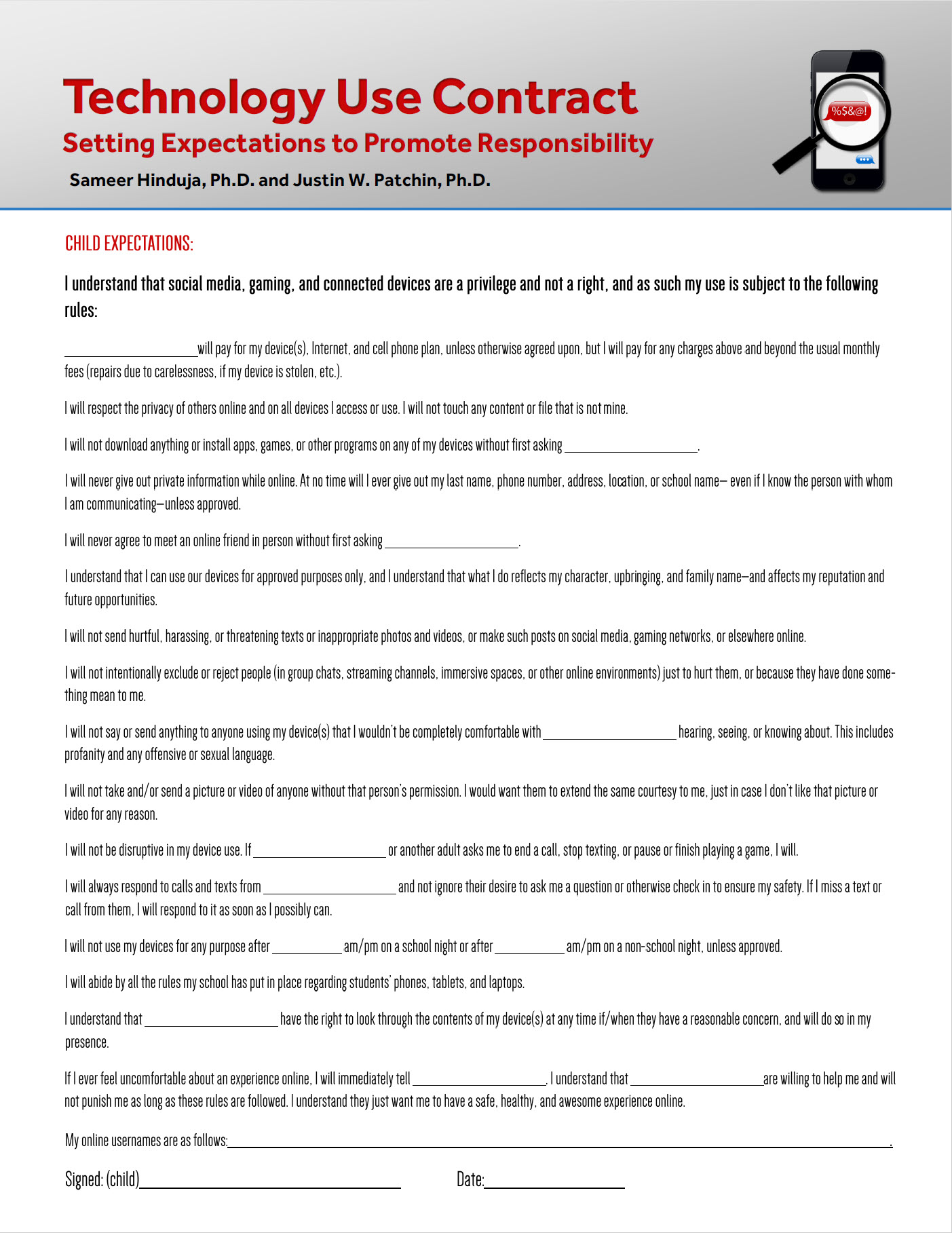
Technology Use Contract
Use this Technology Use Contract to establish an open line of communication regarding the child and parent expectations when it comes to using technology. Download PDF
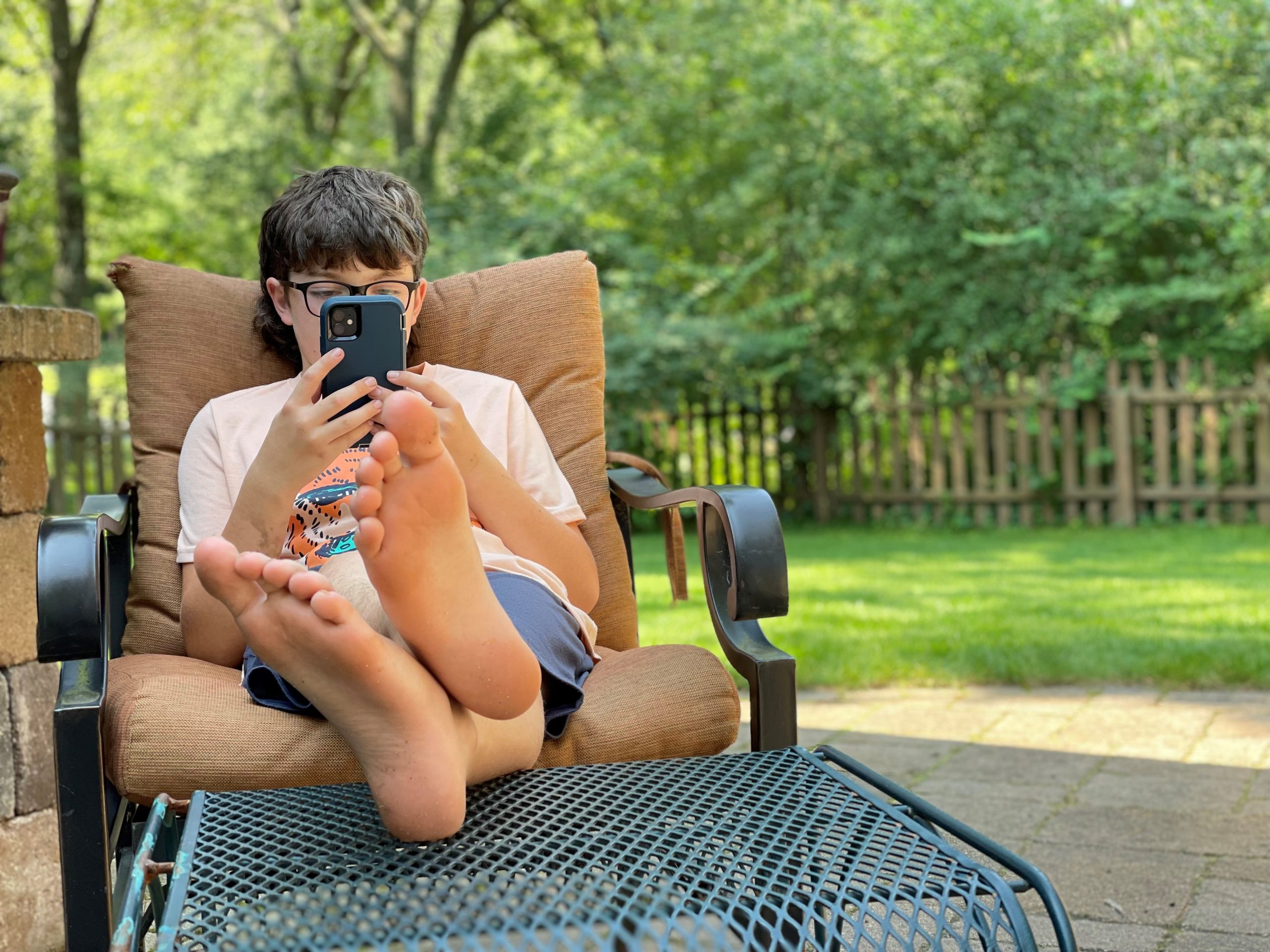
My Son’s First Phone
I was sitting in the bleachers of my son’s recent hockey practice when another parent came up to me and sheepishly asked: “Does your son have a phone?” “Funny you should ask,” I replied. Coincidentally enough, we gave our son his first full-functioning phone that very day. I don’t think this particular parent knows what […]
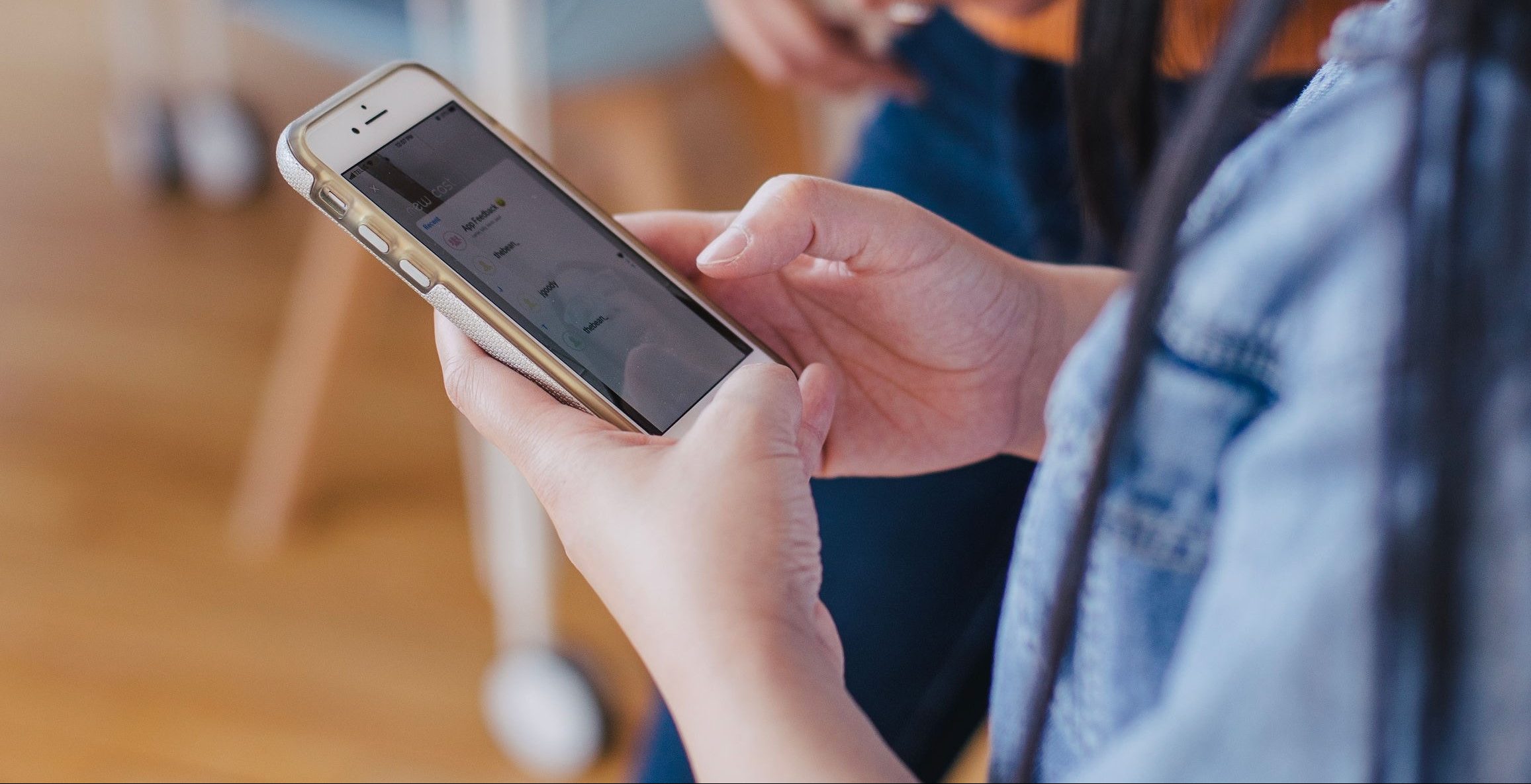
Banning Cell Phones at School: Two Decades of Debate
Should student phones at school be banned? Should they be allowed? And is there a middle ground that optimally serves both teachers as well as students?
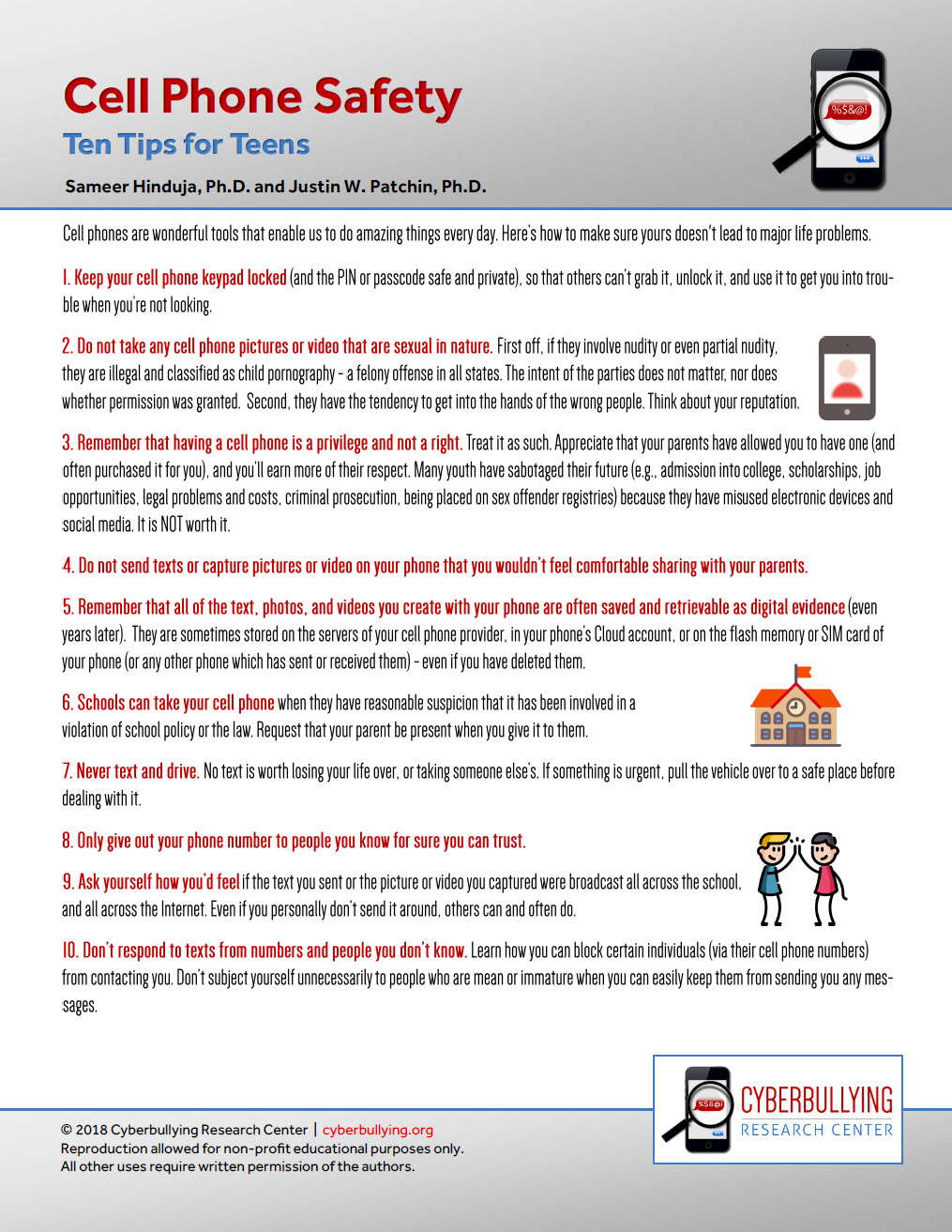
Cell Phone Safety: Top Ten Tips for Teens
(For a formatted .pdf version of this article for distribution, click on the image above [or click here]). Spanish Translation Available Here Cell phones are wonderful tools that enable us to do amazing things every day. Here’s how to make sure yours doesn’t lead to major life problems. 1. Keep your cell phone keypad locked […]
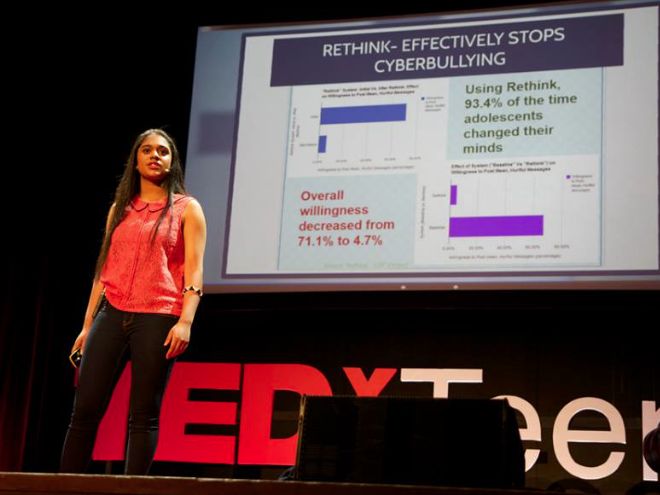
Cyberbullying Prevention Software Encourages You to ReThink
Last October, we profiled Trisha Prabhu, who as a young teenager designed software intended to reduce the prevalence of cyberbullying by invoking the conscience of users before they post or send a malicious or cruel text. Her project and efforts have deservedly received much praise on a national and international level, and Justin and I […]

Password Management Software for Teens
Think about how many times every day you use a password on a phone, computer, social media site, gaming network, or another online account. Passwords are a huge part of our daily lives. Technically, they serve as authentication to identify people as being who they claim to be. Correct authentication is supposed to prevent others […]

Anonymous Postings on Confession Pages, Secret, and Whisper
Describes Facebook and Twitter confession pages, as well as how apps like Secret and Whisper are being used – both for cyberbullying and to help teens cope. What many adults don’t understand, they freak out about. Especially as it relates to teens. I’m generalizing here, but you know what I mean – we really don’t […]

Yik Yak
UPDATE (04-2017): Yik Yak shut down. UPDATE (12-2014): Please see my December 2014 follow-up blog on Yik Yak here after reading this entry. There is a new cell phone application that is gaining notoriety at the speed of light among some groups of teens (as well as their teachers and parents). In essence, Yik Yak […]

Unplug for a While!
Many of us have become so dependent on technology, we don’t know what to do with ourselves without our favorite devices. It’s almost sad (for me, at least) to consider how we don’t know what to do with ourselves if we can’t take out our phone at any moment to check our Instagram feed, or […]

